© europa.eu
“Women are the largest untapped reservoir of talent in the world” is a famous quote by Hillary Clinton, former United States Secretary of State, former First Lady, senator and a former presidential candidate.
Indeed, billions of women worldwide (the world sex ratio is currently 1.018 men to women) are performing every day, affirming and proving their talents and capabilities. But sadly, a great many of them live in highly patriarchal societies where human rights, independence and equality are practically non-existent and where they are subject to abuse. Millions of women fear for their safety worldwide each day. And contrary to general belief, women in economically advanced societies are not exempt from public and private harassment either. Although we are now in the 21st century, women still have a hard time enjoying the same rights as men, as stress and inequality continue to have a negative impact on their health and well-being.
For centuries women were constantly persecuted and excluded from basic citizens’ rights for their supposed inferiority. They were burned at the stake for witchcraft, seen as mere tools of procreation and unable to lead or make relevant decisions.
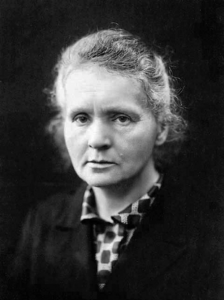
But history has given us enough examples of remarkable women. Brave and intelligent women whose immense potentials could be realised only through great perseverance and self-confidence. Queen Elisabeth I, Marie Curie or Joan of Arc are just a few examples that quickly come to my mind now.
Participation in the political life of the society was also a major desideratum which took many years of struggle and lobbying to come to fruition. Although human history stretches for thousands of years, women’s right to vote was only granted in the 20th century… not so very long ago. Emmeline Pankhurst was a key figure in the fight for women’s suffrage movement, while even great minds like Jean-Jacques Rousseau or Immanuel Kant attributed qualities of citizenship only to men, confining women to the limited domestic environment.
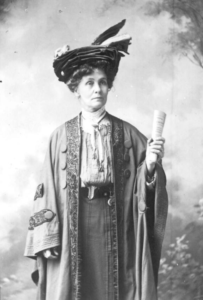
This gender division of European democratic societies was a reality for a long time. Women were represented by men in their families (husband, father or brother), with anti-suffragists arguing that by allowing women to get involved in public life, they would lose other specific qualities and thus would endanger the proper functioning of the families. Sounds familiar? Some of these themes are still heard today, albeit on a different topic.
Finland was the first European country to take a step forward; through a 1906 reform, it established a parliament elected by universal suffrage. Norway followed in 1907, then Denmark, Iceland, Germany and Austria a few years later. Progress came slowly but surely. Women became increasingly involved in different aspects of public life as their voices began to be heard and taken into account.
The Sustainable Development Goals (SDGs) or Global Goals are a collection of 17 interlinked global goals designed to be a ‘blueprint to achieve a better and more sustainable future for all’. The SDGs were set in 2015 by the United Nations General Assembly and are intended to be achieved by the year 2030. Sustainable development is a core principle of the Treaty on European Union and a priority objective for the Union’s internal and external policies. The European Union has committed publicly to implement the SDG of promoting gender equality and women’s rights.
The European Institute for Gender Equality (EIGE) monitors the progress in this field across the EU, with its measurement tool known as the Gender Equality Index. This covers a wide range of indicators such as work, money and pay gap, maternity leave, equal access to power, health, violence, inequalities, indicators linked to EU targets and international commitments. It also analyses how digitalization is shaping the future of work for women and the risks and challenges brought by it to the modern society of the 21st century. It collects data on intimate partner violence, rape and femicide in the EU.

The Gender Equality Index in 2020 ranked Sweden first (with 15.9 points above the European Union’s average score). Sweden has remarkably maintained its leading position since 2010. Denmark and France are ranked second and third. In fact, a survey from 2020 found that generally, the European Nordic countries were rated as the best places to be a woman (YouGov Survey), with Danish women being the happiest within the EU. Other states have made significant progress in recent years with Spain, Italy and Luxembourg among them.

Europe still has a long way to go before reaching gender equality. Sadly, at the current pace of progress, it is estimated that it would take about sixty years to achieve gender equality with the elimination of the pay gap by 2059 (Source: Institute for Women’s Policy Research). Women still struggle in some countries to accede to leading positions and to be fully respected and recognized for their contribution to society.
I recently read an analysis conducted by the New York Times on the first 1500 S&P companies, in which it is said that ‘there are fewer female CEOs than CEOs named John’. It seems that the ‘TO DO’ list remains longer. Cultural attitudes about traditional gender roles further subjugate women and limit their access to a more prominent public role.
Undoubtedly, Europe has made remarkable progress at a very rapid pace, especially in the last hundred years. This progress is not only seen in statistics but also in everyday life.
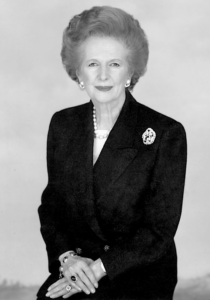
Ever since the UK started a ‘revolution’ by electing the first female Prime Minister of a European government in the person of Margaret Thatcher, a significant number of women have led the destinies of European nations. The first female president in Europe, Vigdís Finnbogadóttir, was elected in Iceland in 1980. By 2019, the global participation rate of women in national parliaments was around 24,5%. Europe has now some of the most prominent women leaders in high and key positions.
Margaret Thatcher’s trend of strong female leadership is continued today by Angela Merkel, the German Chancellor who is one of the most respected political authorities of the last decades (she has been in office since 2005 and was the first female German Chancellor ever to be elected).
Ursula von der Leyen was elected as president of the European Commission and is in office since 2019.
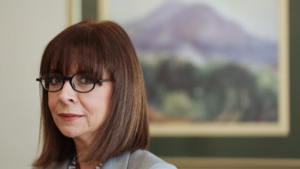
2020 witnessed the election of Greece’s first female president, Katerina Sakellaropoulou, as well as Maia Sandu who was elected president of the Republic of Moldova.
In total, Europe has now ten top female leaders; an unimaginable number, one hundred or even fifty years ago. But there is still a lot to be done in terms of gender equality. Throughout Europe, there are numerous organizations which monitor women’s rights and push for gender equality reforms.
Europe Women’s Lobby was created in response to a growing awareness of the need to defend women’s interests in Europe. It is the largest European umbrella network of women’s associations, representing 200 organizations from all EU member states and the UK. The European Commission granted its support for the foundation in 1990. It has a secretariat in Brussels and founding members from Belgium, Denmark, France, Germany, Ireland, Italy, Portugal, Spain, Greece, the Netherlands and the UK. This structure aims to influence and exert pressure on European institutions to ensure better defence of women’s rights and representation of women’s interests.

Recently, the tragic case of Sarah Everard, the 33 year old British woman who was kidnapped on her way home and murdered, reignited the debate on women’s safety in the UK and Europe. The OSCE led a survey (2015-2019) on the well-being and safety of women. Violence against women and girls is a persistent human rights violation, threatening the security of victims and also preventing them from complete development and reaching their full potential and contribution to society.
The conclusion of the study showed the need to enhance efforts to implement further legislation and improve the action plans regarding all forms of violence against women. It is officially recognized that the highest risk groups are young women, economically dependent women or mothers. Violence has an extreme psychological effect, long after the aggression has taken place.

It is estimated that one in three women in Europe has experienced violence in some form, at least once in her lifetime. Most aggressions take place within the families’ close circle and studies show that a majority of women don’t know what to do if they experience any type of violence. There seems to be a general and deeply-rooted instinct to avoid reaching out to others for help. People’s indifference, a society that condemns outright, guilt, fear of rejection or the lack of decisive actions from the authorities and the law oblige the majority of these assaulted women to keep quiet and to live their daily drama far away from the public eye. It is now estimated that only about 30% of assaults and abuses are reported and properly investigated by the police. (Source: European Commission). During the current pandemic with strict lockdowns everywhere, the situation has worsened dramatically.
The Council of Europe Convention on Preventing and Combating Violence against Women and Domestic Violence, better known as ‘The Istanbul Convention’, is a human rights treaty which was signed on 11 May 2011 in Istanbul, Turkey, by 45 countries as well as by the European Union as an entity.
The convention was drafted by the Council of Europe, an international organization founded after World War II aimed at safeguarding human rights and setting common standards regarding protection against violence. The treaty contains obligations and regulations committing the governments of the signatory countries to protect victims, invest in education and gender equality as well as ensure a free life and equal access opportunities in society. The treaty also addresses the reality of the disproportionate violence against women and the historical inequality between men and women. It urges governments to adopt necessary legislation for prosecuting acts of domestic violence and similar abuse as well as marital rape and female genital mutilation.
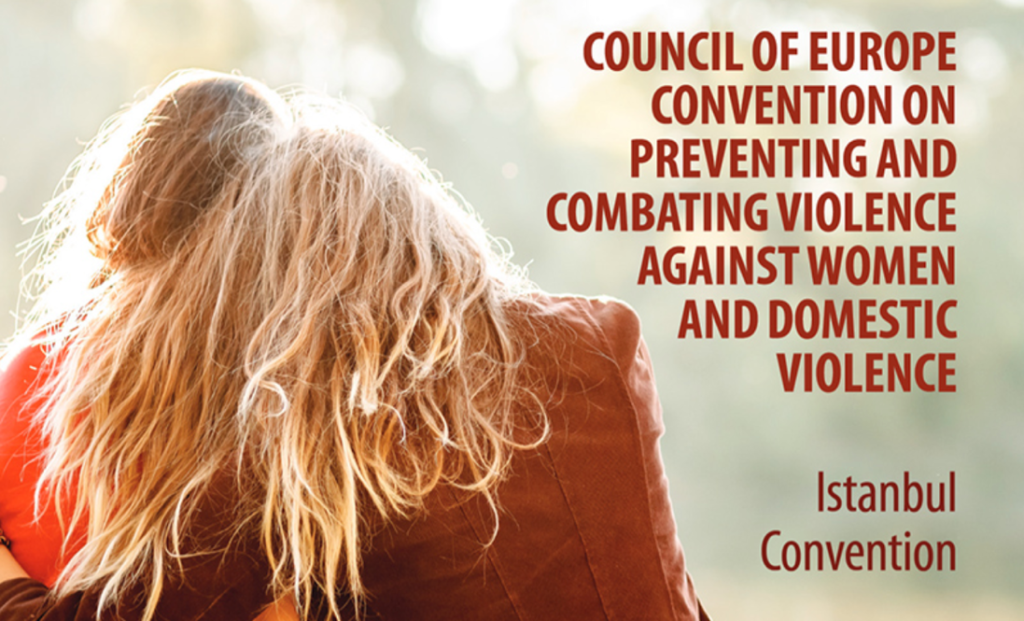
The recent withdrawal of Turkey (in 2021) from the 2011 Istanbul Convention has politicized the treaty, with those for and those against intent on gaining political capital from the dispute. Turkey is the first country ever to have decided to leave a Council of Europe treaty that it had already ratified. So far, Turkey has not officially offered grounds for its decision, but extremists throughout Europe are already using this as a political tool. Through intense, online disinformation campaigns, these entities are spreading a series of myths and false accusations related to the treaty, which unfortunately, many believe.
Among these is the idea that the treaty supports a destructive gender ideology and that it legitimates illegal migration by ensuring women’s unconditional right to seek asylum. Others pretend that it forces ‘third gender’ recognition; this is in fact entirely false, as the term ‘third sex’ doesn’t even appear in the treaty. Some voices say that the national legislation of some countries is strong enough and already provides all the necessary tools in the fight against violence, and do not need the additional legislation demanded by the Istanbul Convention.
The idea that the treaty threatens traditional family values and its proper functioning, while promoting same sex marriages is also widely circulated among those who oppose the convention and seek withdrawal.
The treaty only states that the abused have the right to receive protection and support.
Council of Europe officials have tried to assure everybody that ‘the treaty has no other agenda’. (Daniel Höltgen, Director of Communications at the Council of Europe).
The EU has denounced Turkey’s actions, especially at a time when femicide (usually defined as the murder of a woman by a partner, an ex-partner or family member) has surged in the country in recent years.
Although Turkey doesn’t keep an official record, the World Health Organization estimates that the phenomenon has tripled in the last ten years and that approximately 38% of women in Turkey are subject to violence of some sort. Last year alone, more than 300 women were murdered in Turkey, according to the same organization.
Marija Pejcinovic Buric, Secretary General of the 47-nation Council of Europe, called Turkey’s decision to leave the Convention “devastating…a huge setback”.
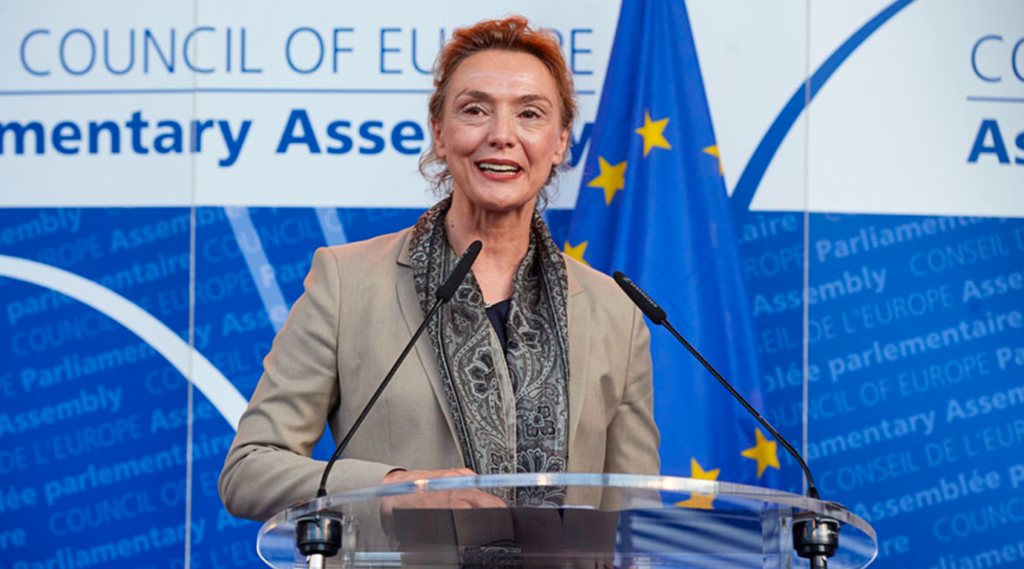
I remember a few years ago, I helped organize a UNICEF movie night. We were screening ‘Mustang’, a multi-award winning and internationally praised drama which won four César Awards, including one for ‘Best First Feature Film’ as well as many other prizes. The film follows the tragic story of five orphaned Turkish sisters facing constant emotional and physical abuse in a conservative and patriarchal rural community. Although fictional, the producers of the movie have said that the story is similar to many true ones, of women constantly and brutally abused in the name of old traditions and customs.
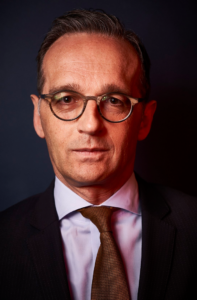
Heiko Maas, the German Minister of Foreign Affairs in the fourth cabinet of Angela Merkel (since March 2018) has said: “neither culture, nor religious nor other national traditions can serve as an excuse for ignoring violence against women”.
UNICEF has launched its own campaign against domestic violence. Known as #endviolence, it aims to raise awareness about this delicate and still persistent issue. November 25th is now officially the International day of the Elimination of Violence against Women.
Recently, there have been actions suggesting that Poland is also planning to withdraw from the Istanbul Convention and seeking to replace it with a law which will prevent same-sex marriages and abortions. Hungary and Bulgaria have distanced themselves from the treaty, which they have previously signed but never ratified.
European officials stress the importance of remaining engaged with the treaty, even though immediate tangible results are not evident. Its implementation needs further work and constant commitment.

Domestic violence is still on the rise. Violence against women is an issue that transcends borders, class or socioeconomic status. It affects women and girls in all societies. Eurostat is developing an EU-wide survey to obtain updated prevalence figures on violence against women in the EU. The survey will be implemented in Member States from 2020 onwards.
Eurostat data show that Finland, Northern Ireland or the Baltic Republics have among the highest rates of domestic violence in Europe. (Northern Ireland does not have a law criminalizing the use of “coercive control” on a partner.)
The European Commission regularly co-funds European national and local projects to prevent violence against women and children and to support victims. So far, it has provided funding for 173 projects such as training doctors and nurses in Finland to recognize signs of domestic violence, a big campaign at major football stadiums in Italy, designed to reach out to men and boys with the message that violence against women is unacceptable, and training judges in Croatia to address barriers to the legal protection of women.
Charles Malik, former President of the Commission on Human Rights at the United Nations General Assembly, once said that “the fastest way to change society is to mobilize the women”. They are an important part of every society today. Continuous research has already proven the importance of women’s involvement in peace and security issues. The United Nations Security Council Resolution 1325 says that ‘peace and security efforts are more sustainable when women are equal partners in the prevention of violent conflict’. It also acknowledges the fact that often women and girls are disproportionally impacted by violent acts and wars.
Women bring balance, sensitivity and must actively contribute to the definition of any modern society in the 21st century. At the same time, barbaric and outdated practices and conduct that threaten the integrity and safety of women must be banned. Equal opportunities are the only reliable and long-term solution.
“What would men be without women? Scarce, sir… mighty scarce” (Mark Twain)

